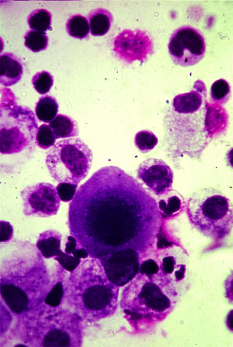HPV prostate links checked
 Experts say human papillomaviruses (HPV) may cause prostate cancer too.
Experts say human papillomaviruses (HPV) may cause prostate cancer too.
Australian researchers have reviewed results from 26 previous studies on HPVs and their links to prostate cancer.
They assessed the existing evidence using a common set of nine causal criteria, including the strength and consistency with which HPVs were associated with prostate cancers and whether HPVs were detected in prostate tissues that later went on to develop cancer.
“Although HPVs are only one of many pathogens that have been identified in prostate cancer, they are the only infectious pathogen we can vaccinate against, which makes it important to assess the evidence of a possible causal role of HPVs in prostate cancer,” says Dr James Lawson from the University of New South Wales.
The authors found that the high-risk HPV types 16 and 18, which cause the majority of cervical cancers, have been identified in normal, benign and malignant prostate tissues.
In several case control studies, the prevalence of high-risk HPV DNA, which indicates the presence of cancer-causing types, was significantly higher in prostate cancers compared to normal and benign prostate controls.
Specifically, recent studies found that 231 of 1071 prostate cancers (21.6 per cent) were HPV positive, whereas only 74 of 1103 benign prostate controls (6.7 per cent) were HPV positive.
“Across several studies conducted in a wide range of countries and using different methods to identify HPVs, we found reasonably consistent evidence that high risk HPVs are significantly more prevalent in prostate cancers than in normal prostate tissues and benign prostate tissues,” said UNSW researcher Dr Wendy Glenn.
“Previous studies have also shown that high risk HPVs were present in benign prostate tissues that up to ten years later developed HPV positive prostate cancer of the same HPV type.”
Additionally, the study found that in countries where mortality from cervical cancer was high, mortality from prostate cancer was also high, whereas in countries where mortality from cervical cancer was low, mortality from prostate cancer was also low.
The authors suggest that the evidence for a causal role of HPVs in prostate cancer is sufficiently sound to encourage universal vaccination against HPV infections.
“Many people assume that HPV infections mainly lead to cancers in women. This is not the case. HPVs are a common cause of cancers in men,” Dr Lawson said.
“These are mainly genital cancers of the anus and penis but also include cancers of the mouth, tongue and throat. It is therefore plausible that HPVs may also play a role in prostate cancer and that HPV vaccination may help prevent prostate cancer development.”








 Print
Print